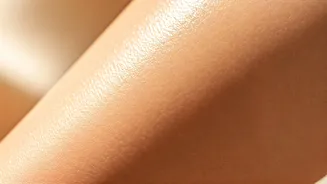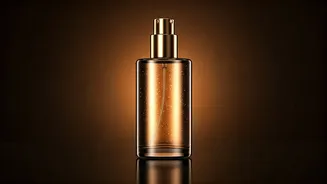What is Retinol?
Retinol is a derivative of Vitamin A that's celebrated in the world of skincare for its remarkable ability to rejuvenate the skin. It acts as a powerful
agent, helping to speed up cell turnover. This process involves shedding dead skin cells and encouraging the growth of new ones. Beyond its exfoliating capabilities, retinol boosts collagen production, which helps diminish the appearance of fine lines, wrinkles, and uneven skin tone, leading to a smoother and more youthful complexion. Consistent use of retinol often results in improved skin texture, reduced pore size, and a radiant glow, making it a highly sought-after ingredient in anti-aging routines. The best part is it has so many benefits, it’s worth including in your regular skincare regime.
Choosing the Right Texture
Selecting the right retinol product can be crucial to the overall effectiveness and comfort of your skincare routine. Retinol comes in different formulations, each tailored to cater to various skin types and concerns. Creams are generally a good starting point, particularly for those with sensitive skin, as they tend to be less irritating due to their moisturizing base. Lotions, which are lighter, work well for oily or acne-prone skin, as they provide hydration without excessive oiliness. Serums are often more concentrated and can deliver a potent dose of retinol, making them ideal for targeting specific concerns like wrinkles. The strength of the retinol concentration is another key consideration, with options varying from low concentrations for beginners to higher percentages for those with more experience. Always introduce retinol gradually to assess your skin's tolerance.
When to Start?
The ideal time to start incorporating retinol into your skincare routine is a matter of personal needs and preferences. However, many dermatologists recommend starting in your late twenties or early thirties, when the natural decline in collagen production begins to accelerate. At this stage, retinol can effectively combat the early signs of aging. It's also important to consider your skin's specific needs and concerns. If you have active acne or other skin conditions, consulting with a dermatologist is always wise to determine the best approach. There is no hard and fast rule, but starting early can prevent the signs of aging. Consistency and proper usage are more important than age when it comes to experiencing retinol's benefits.
Common Mistakes To Avoid
Several common mistakes can reduce retinol's effectiveness or lead to undesirable side effects, such as irritation and peeling. One of the most frequent is using too much, too soon. Start with a low concentration and gradually increase the frequency of application to allow your skin to build tolerance. Another mistake is combining retinol with other harsh ingredients like AHAs, BHAs, or benzoyl peroxide, which can increase the risk of irritation. Remember to apply retinol to dry skin. Moisture can make it penetrate deeper, and it's essential to avoid excessive sun exposure. Always wear a broad-spectrum sunscreen during the day, as retinol makes your skin more sensitive to the sun. Being mindful of these common pitfalls can help you harness the full benefits of retinol while minimizing any negative effects.
What Results to Expect
The time it takes to see visible results from using retinol varies from person to person, depending on factors such as skin type, the concentration of the product, and consistency of use. Generally, noticeable improvements can be seen within a few weeks to a few months. Initially, you might experience some skin purging, which means that your skin will get worse before it gets better. This can involve breakouts or flaking, as the retinol speeds up cell turnover. It's crucial to be patient and stick with the routine. Over time, you can expect to see a reduction in fine lines, wrinkles, improved skin texture, and a more even skin tone. Retinol isn't a quick fix, but with regular use, it can bring about significant and lasting improvements to the overall health and appearance of your skin.
Lifestyle Matters Too
While retinol is a powerful skincare ingredient, lifestyle choices significantly impact its effectiveness and your overall skin health. Staying hydrated is essential, as dry skin tends to be more sensitive and less responsive to retinol. Maintain a balanced diet rich in antioxidants, which can help protect your skin from free radical damage and support the benefits of retinol. Prioritize adequate sleep, as your body repairs and regenerates itself while you rest, which is essential for healthy skin. Furthermore, managing stress levels through practices like yoga or meditation can contribute to healthier skin, as stress can worsen skin conditions. By combining the use of retinol with healthy lifestyle habits, you can maximize its benefits and promote radiant, youthful-looking skin.




















